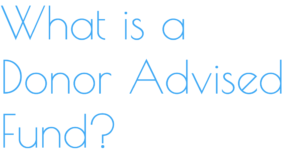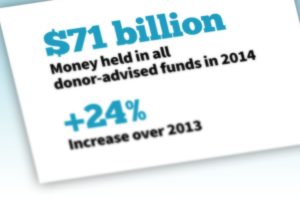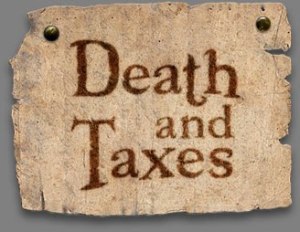Editor’s Note: This post ran as as newspaper column in the beginning of March 2020, before it was clear the imminent threat that COVID-19 posed to everyone’s health. So…this message just got a lot more urgent since the beginning of March.
In December 2017, my friend, who I will call LM, and her sisters visited their elderly father for Christmas. During that visit, he verbally expressed a few wishes to her, just in case something should happen to him.

At the time, he had gone so far as to have a will drawn up, but he had not finalized a plan with his official signature. In addition, he had not authorized anyone with a durable power of attorney, in case of illness.
LM is not sure if he didn’t finalize papers with his signature due to a psychological block around facing his mortality, a mistaken idea for saving money, or hesitation around who should use his apartment if he died. All she knows is that he’d done 99% of the process, but didn’t complete it.
A week later, in January 2018, he fell ill and was hospitalized. Then, family hell broke loose. The story is a bit complicated, as these stories always are. As Tolstoy wrote in the beginning of Anna Karenina, “every unhappy family is unhappy in its own way.” Like other 19th Century novels, LM’s story stems from contested estates, suspicion between family members, and expensive legal processes.
LM’s father’s girlfriend became verbally abusive. LM’s aunts – LM’s father’s sisters – were suing LM’s father, in the mistaken belief that LM’s father – as trustee of their father’s trust – was collecting more than his fair share, while their father LM’s grandfather was still alive.
Meanwhile, paying for her father’s care during a 2-months’ long hospitalization became complicated. Without a written and signed power of attorney, and in the face of a draining lawsuit and logistical difficulty even making health care decisions, LM and her family had to declare a “conservatorship” for her father’s assets. Her father died at the end of February 2018 without a will, and with his estate under legal attack from his own sisters.
Tanya Feinleib, an attorney and shareholder at Langley & Banack in San Antonio, board certified in estate planning and probate law, says this type of “conservatorship” or “guardianship” can be an expensive and cumbersome court-supervised process.
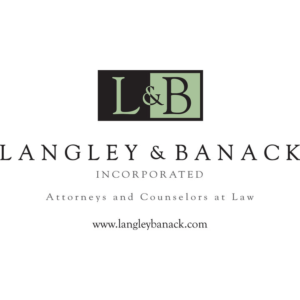
LM describes three kinds of costs to not having a will and power and attorney at the time of her father’s death. The first is in time.
LM’s father died in late February 2018, two full years ago. She and her two sisters have only just this past month settled the probate case, and settled a lawsuit with her aunts. Two years is a long time to remain suspended in an uncomfortable legal process with family members, made worse by the mixture of mourning, family strife, and uncertainty.
The second cost is the most obvious one, dollars drained from her father’s estate. LM calculated that her father’s estate paid 13 times more than necessary, for lack of a power of attorney. She calculates that her father’s estate paid 3 times more than necessary for lack of a will. When she includes the costs of settling the lawsuit with her aunts, more than 30% of her father’s estate was lost due to a combination of unclear communication and unfinished estate planning. Over half a million dollars remained suspended in probate, and then drained by a third, over two years.
But the third cost, LM says, was the worst.
LM told me, “What’s even more tragic are the physical, psychological and spiritual costs of siblings who used to love each other growing to hate each other. All of that stress physically manifests in them. The worst cost imaginable to me, would be to be so insanely angry with a sibling that you couldn’t find it in you to forgive them, to say good-bye to them on their deathbed or even attend their funeral. That still makes me cry when I think about it.”
A 2016 Gallup poll found that just 44 percent of American adults have a will Of course this number varies by age, with only 14 percent of those aged 18-29 having a will (Millennials, amirite?), and 68 percent of folks over age 65 with a will. (Ok, Boomer) I’m now talking to the 32 percent of you without a will. What are you thinking? Do it. Do it now.
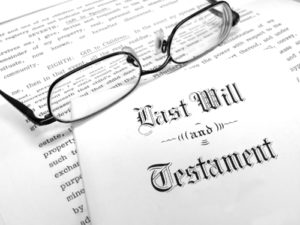
You should expect the cost – for a family without complicated trusts or an ultra-high net worth – to range between $1,000 and $2,500 to prepare a will and power of attorney documents. Expect on the low end for single people without dependents. Higher for more complex families and estate requirements. Feinleib says that there are legal aid providers in many cities, including Houston and San Antonio, that offer free wills and powers of attorney for people who qualify. Some employers offer an employee assistance program for free or subsidized time with an attorney, which could be used to get your will done.
It may be tempting to try to save money without an attorney. Feinleib says web-based or artificial intelligence will-preparation could happen in our lifetime, but don’t rely on that yet.
“For now, with respect to handwritten wills and off-the-internet wills” Feinleib warns, “When they go wrong, they tend to be extremely expensive on the probate side.”
My friend LM’s main reason for speaking with me about the details was to encourage other people to get this done right away. To not let her family’s heartache happen to other families.
Feinleib says “I think it’s the most loving thing you can do for your family. Your incapacity is going to be one of the worst moments of their life.” By properly preparing for that time, she says, you give your family a great gift.
The costs and some of the heartaches endured by LM and her family were avoidable. Says Feinleib, “every person needs to have a plan in place for who will make decisions regarding health care if they become incapacitated.”
Would you like to know the worst, ironic part of this? Even two years following her father’s death, even after years of expensive litigation, LM’s own mother has still not prepared her own will. LM herself is a certified financial planner, and one of her sisters is an attorney. And they still can’t convince their own mother to prepare her will. After the last two years of probate hell and family struggle, LM was in a state of near-disbelief when she told me this, caught somewhere between shock and bursting into tears.
A version of this post ran in the San Antonio Express-News and Houston Chronicle.
Post read (171) times.


